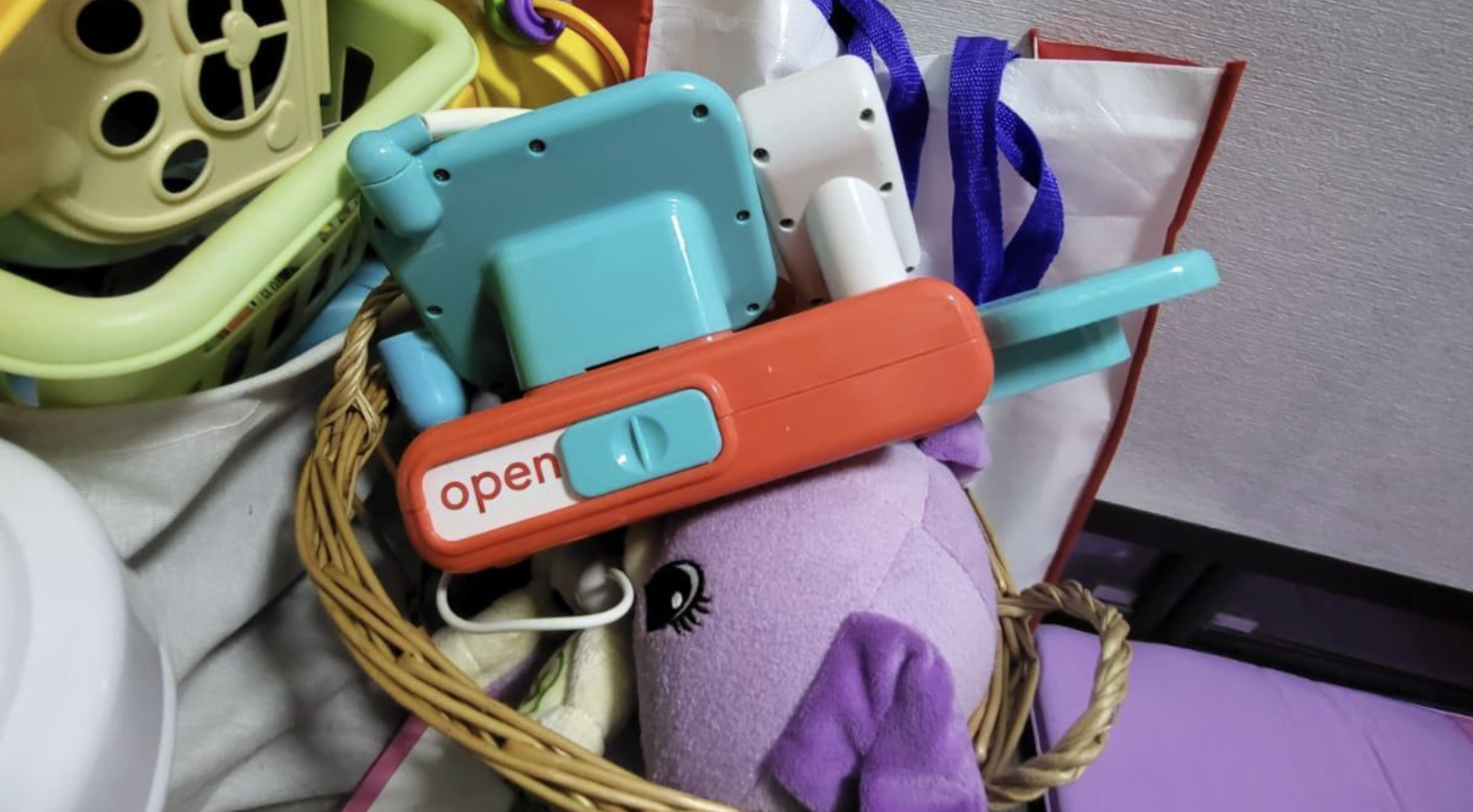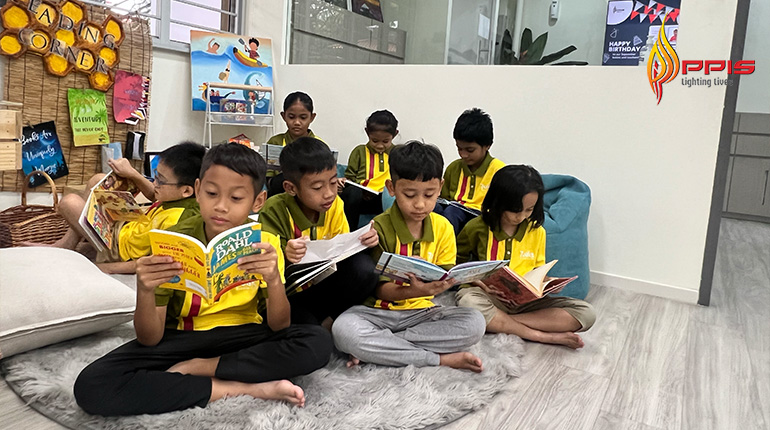Borrowed, Not Birthed: The Foster Parents Fostering Hope for Children in Need
January 16, 2024
Borrowed, Not Birthed: The Foster Parents Fostering Hope for Children in Need
Mdm Lydia and Mr Noorirwan, and Mdm Erica and Mr Raihan are part of a small but essential community of foster parents who take in children placed in foster care.
But what sets them apart from other foster parents is the fact that they care for these children despite having no children of their own.
The house I am visiting seems to be just another BTO flat, occupied by a couple with young children – a new(ish) family settled into a familiar routine with a similar make-up to the other households within the vicinity.
However, the people I am about to meet and interview today are not your average neighbours, they are foster parents who have no biological children of their own.
For some, the idea of foster care evokes images of abused and neglected children whose parents are going through challenges. This may be true to some extent, given the unfortunate circumstances that result in an environment that is not optimal for a child’s safety and development. Fostering aims to provide children in need with a safe and stable family environment while professionals work with birth parents to stabilise the family. Family-based care provides individualised and stable caregiving which is crucial for the development of a child’s social, emotional and mental well-being.
Besides necessities like food, clothing and shelter, foster families also provide love and care, role-modelling positive family dynamics for their foster children despite their less-than-ideal situations.
It is thus quite typical for foster parents to be couples who’ve already had the experience of raising their own children and have the resources to care for another child temporarily.
Why, then, would a child-free couple choose to become foster parents, and have their first experience of parenting be, by definition and by choice, unpredictable?
Opening Hearts and Welcoming Homes

While there are many reasons for not having children (yet), these couples typically either embrace a life free of parental responsibilities or continue trying for a child till they conceive. We got to know two couples who chose to take on parental responsibilities, when they did not yet need to.
The first couple I spoke to was Mr Raihan and Mdm Erica. Mr Raihan was quite skeptical about fostering when his wife, Mdm Erica, first brought it up. He was more open to other forms of volunteering such as helping to transport children, another support service that PPIS volunteers provide. Mdm Erica, on the other hand, was already used to volunteering and believed that members of the community should step up and help those in need. In this case, it was vulnerable children in need of safety and protection. For Mdm Erica it was “now or never”. As a couple, they went through several rounds of discussions and worked through their expectations before finally submitting their fostering application.
The next family I spoke to was Mdm Lydia and her husband Mr Noorirwan, who had been trying for their own child for many years. They had also considered adoption before but decided to go ahead with fostering due to the more complex nature of adoption. They felt even more motivated after finding out that there is a constant need for more foster parents. It took them 3 years of attending several sharing sessions and doing their thorough research on fostering before they eventually submitted an application form.
These sessions were regularly available, and although there was much to learn, Mdm Lydia felt reassured that there was a strong system of support with the PPIS Oasis’ social worker and foster parents’ network. However, it still seemed counterintuitive for her to put so much time, effort, and resources into someone else’s child—especially in this day and age when parenting has become that much more demanding and expensive.
Both couples did thorough research before they decided to embark on their fostering journey with an open heart. Among the many things they learned along the way: It’s a myth that you need to be a parent first to foster children.
Instant Families
Mdm Erica and Mr Raihan
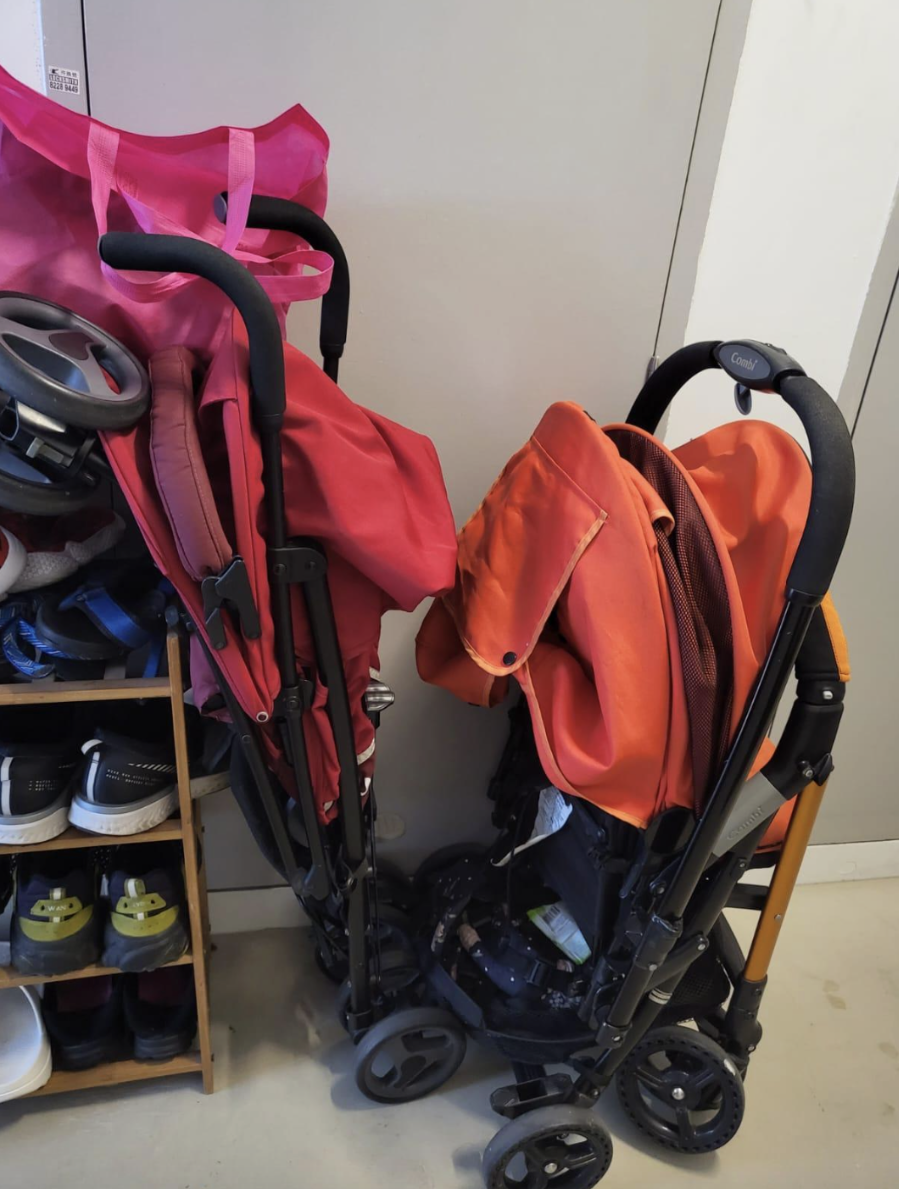
Not having had children before, both Mdm Lydia and Mdm Erica were nervous about caring for a child in their own homes. In contrast to couples with their own children, who have a gestational period of approximately nine months before the baby is born, foster parents have limited time to prepare for the arrival of a child into their homes.
Mdm Erica recalled the day she met *Fiya. The call to place a foster child with her and her husband came sooner than expected, shortly after she completed her foster parent training programme with the Social Service Institute.
On the day their lives changed forever, an urgent call came from her fostering agency to ask if she would be open to taking in an infant in need of a temporary home for about 5 months. She had little time to make her decision; the officer over the phone informed her that the child had to be picked up from the hospital that very same day. Mdm Erica rushed to reach her husband over the phone. There was much to consider but the couple was sure they were ready for this adventure. Just like that, in a few short hours, Mdm Erica and Mr Raihan became instant foster parents.
Though they were mentally prepared to care for a child, logistically, they had a lot of preparations as there were items that they had not yet purchased. Mdm Erica quickly reached out to her relatives and friends and managed to secure a box of clothes and a cot – items needed to get through the first night.
Upon arrival at the hospital with her husband – only one foster parent was allowed to enter with the social worker as COVID restrictions were still in force then – Mdm Erica quickly found herself whisked away to meet her new foster child, *Fiya. That evening in the hospital, Mdm Erica found herself holding up baby Fiya and remembered wondering, “How can we best care for you?”
That night, both Mr Raihan and Mdm Erica stared in wonder at *Fiya as she fell asleep in their home. Mr Raihan recalled it being a breathtaking moment that sparked the beginning of a fulfilling experience. They were now—instantly and inevitably—a family.
Sacrifices Abound
Mdm Lydia and Mr Noorirwan
Mdm Lydia’s experience of taking care of her first foster child was smoother than she expected. Her husband and her had all the logistics they required, and her mother also frequently came over to assist them. However, managing schedules and coordinating caregiving duties was trying. In fact, when I arrived at her home, Mdm Lydia was still out picking up her foster child from her access session with her birth family while her mother prepared dinner at home. Access sessions are where foster children meet up with their birth families; foster parents typically help ferry them to and from these sessions. It is important for foster children to continue maintaining contact with their birth families as the end goal of fostering is for the children to be reunified with them.
While integrating into their new foster families, foster children also need routines that Mdm Lydia, her mother, husband and sister consistently reinforce. Truly, it takes a village to raise a child.
Mdm Lydia admits that she sometimes misses the spontaneous trips to Johor Bahru that she and her husband used to enjoy. Now they look forward to the moments they have as a couple when the children are in school or at her mother’s home.
Despite the upheaval of priorities and schedules that come with having a child to care for, Mdm Lydia does not regret her decision. Her hope is for each child to grow up healthily and to fulfil their potential. Mdm Lydia’s foster children have endearing nicknames for her, just like any other family. In fact, she remembers a foster child saying to her, “Because you care for me, you are my mother.”
Mdm Lydia and and Mr Noorirwan opened their homes and hearts to foster children because, as Mdm Lydia shared, “When there are children at home, you look forward to coming home and spending time with them. Children are a joy to have and be around.”
They do their best to raise their foster children and love them unconditionally. But being a parent—foster or birth—goes beyond just loving children. As with every parenting experience, there will be challenging days and imperfections. For foster parents, dealing with a foster child’s previous traumas can take a mental toll.
Healing Traumas and Fixing the Broken
As a foster parent for more than two years now, Mdm Lydia shares that the most difficult (yet most rewarding) part of fostering is helping her foster children deal with the trauma they experienced early in life.
She recounts a time when one of the foster children would cry loudly every single night due to her past trauma. All she could do during those nights was to pat the child to sleep and process the experience with her later.
To Mdm Lydia, communication is of utmost importance, to help foster children engage with their emotions rather than repress them. She and her husband cited the need to be observant and sensitive, and at times, use soft toys to help their foster children express themselves. I assume the reversible TeeTurtle plushie I spot in the corner of the house is one of them.
She firmly believes in not treating foster children differently despite their backgrounds to help them feel secure and safe. She hopes they feel just like any other child instead of continually asking why they are different.
“My foster children come with emotions that we must slowly understand and help to soothe. Some have nightmares, while others tend to fall sick very often. It can be as trivial as constantly coughing when they have cold food. We closely observe them so we can take care of them in the best way possible.”
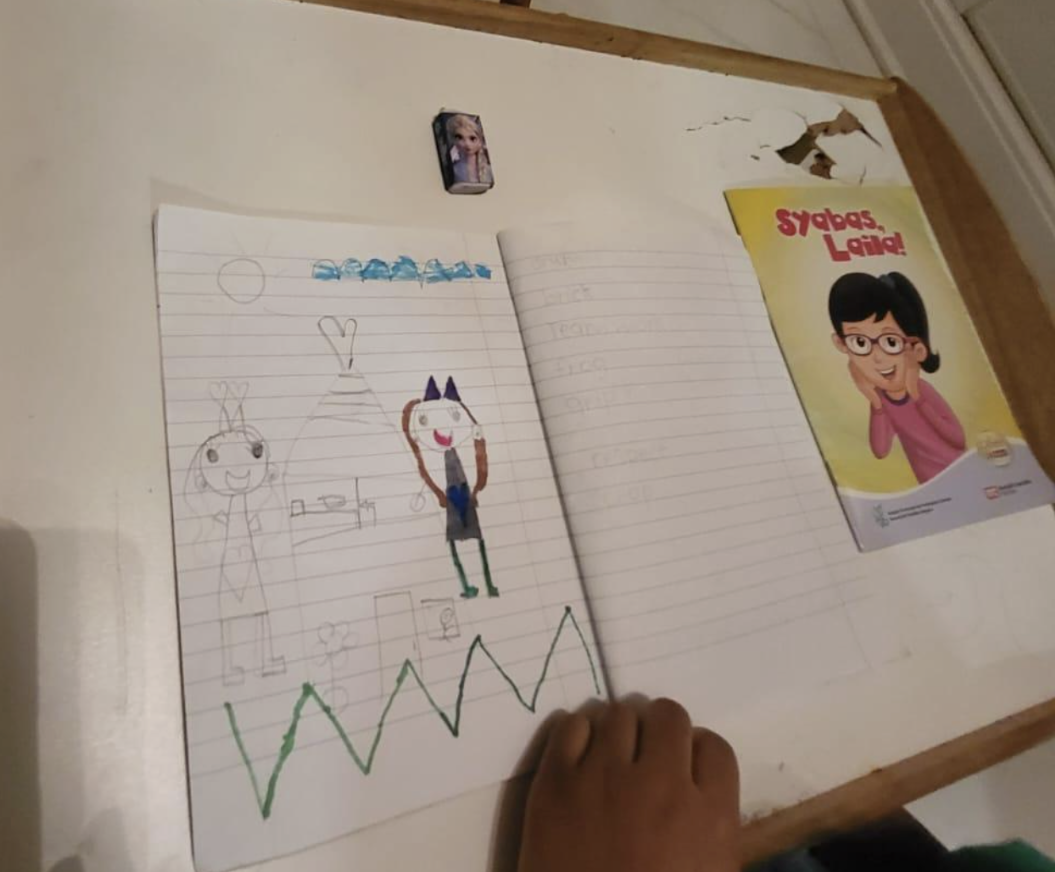
Mdm Erica and Mr Raihan
Mdm Erica and Mr Raihan also see themselves as protectors of their foster children’s childhood. They want to help the children break free from circumstances they are entrenched in.
To them, the act of loving children who desperately need their loving home has become a core part of their identity. They simply do not see themselves living any other way.
Their story is not without difficult moments. One of their foster children once had a meltdown and cried, “I want my Mummy!” so loudly and so many times that the neighbours came to check on them. Mr Raihan and Mdm Erica took turns hugging her and used art to help her process her feelings and make a card to give to her birth mother.
“The children just need an outlet to express themselves. It is not always easy, but once we have set our intention to look out for these kids, we want to commit to making a difference and helping not just the children but the parents as well.”
The Inevitable Goodbye
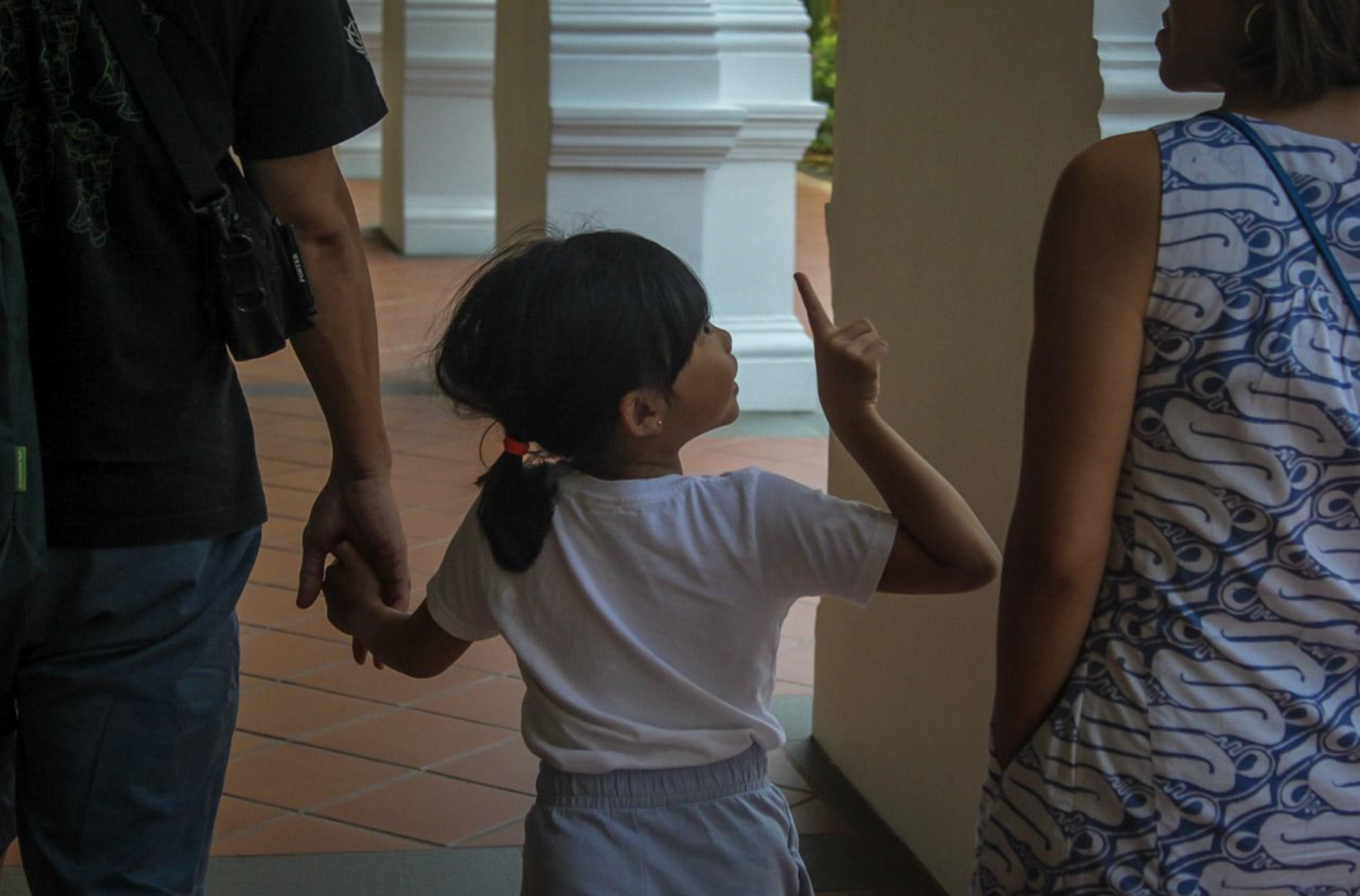
The work of a foster parent is 24/7, just like that of any other parent. But unlike birth parents, most foster parents will bid farewell to their foster children, no matter how close or loving they grow to be.
“I love them and take care of them when they are here. But when they go, I let them go,” Mdm Lydia remarked. Mdm Erica echoed the same sentiment.
“When the child is with me, I go all out because, in the time that we get to spend together, it is all within my control to give the child the best care. The moment I have them, I can decide what kind of mother I want to be. When I set my intentions in the present, I know that even if they are not with me, I will still love them. And that itself is enough.”
In fact, Mr Raihan recounted an incident when he bumped into one of his previous foster children while out shopping. The boy recognised him and reached out for a hug despite being with his birth family at the time. These moments are not filled with sadness. They are filled with happiness that the children are cared for and happy.
Mdm Erica has even influenced her own cousin to start fostering, and they both enjoy witnessing the milestones of their foster children together. While her cousin was skeptical if she could deal with the inevitable goodbyes, Mdm Erica merely said: “It’s okay. We can cry together.”
For Mdm Erica and Mr Raihan, having children in their home has added more joy to their marriage. Mr Raihan enjoys seeing Mdm Erica’s dedication to motherhood and believes in his role as a father so much that he made a mid-career switch into the early childhood sector to care for even more children. He now loves his job as a kindergarten teacher.
During this interview, seeing them banter with and care for the two children they currently foster, I’m struck with a sense of peace. In the waning strains of sunlight, this household comes together to love and have happy memories, though they may be bittersweet.
One of the foster children in their care is due to leave the following week after spending Hari Raya with Mdm Erica and Mr Raihan. Just earlier in the day, they received news of the date she will leave. They are planning how to share the news with the 7-year-old.
*Name has been changed.
“It will definitely be over ice cream, and we will both be there. We don’t really have a script, but we will go with how she reacts and reassure her that she will always be in our hearts, even though she may not always be with us.”
In 2022, there were 596 foster families in Singapore and 540 children in foster care. More foster parents are needed to care for vulnerable children. Foster parents receive a suite of support services including support from Foster Care Workers, a monthly allowance, medical fee exemption card for the foster children, childcare/infant care/student care subsidies, childcare leave and other forms of support.
PPIS Oasis provides case management and counselling, and foster parent support groups for both foster parents and children. They also organise workshops to impart skills to help children cope/ manage their emotions. If you are interested to find out more, click here.

